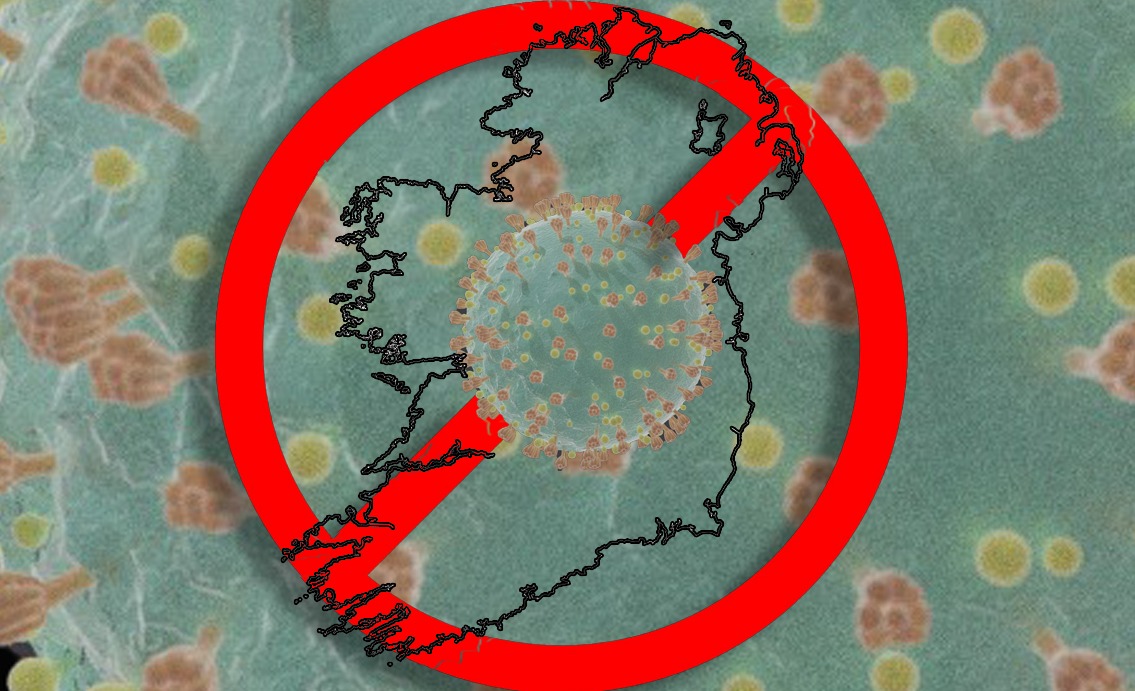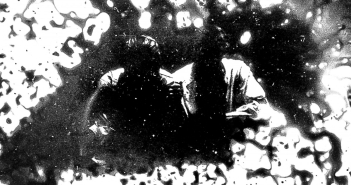So-called ‘ZeroCovid’ is a ‘zero-tolerance’ approach to the virus, promising to eliminate community transmission in Ireland. The concept has gained traction among young people, especially, desperate for an end to a seemingly endless cycle of lockdowns, and others worried by the danger posed by the disease itself.
The original ‘zero-tolerance’ policy is identified with Donald Trump’s associate Rudy Giuliani’s tenure as mayor of New York (1994-2001), and involved punishment for even minor infractions.
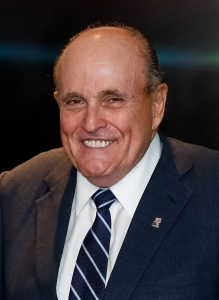
Rudy Giuliani
Most criminologists agree, however, that zero-tolerance, based on the ‘broken window’ theory of policing, made little difference to overall crime rates, which seem to have been falling in New York prior to Giuliani’s period in office. New powers of arrest simply handed police carte blanche to remove homeless people from affluent neighbourhoods. Thus Time Square became a safe haven for tourism, but ghettos remained no go.
Zero-tolerance policies emerged in a neoconservative era alongside ‘humanitarian interventions,’ culminating in the illegal invasion of Iraq in 2003, led by U.S. President George W. Bush, and supported by U.K. Prime Minister Tony Blair. Blair also backed a zero tolerance approach to crime in the U.K., and has recently inveigled his way back to prominence as part of the ‘war’ effort against Covid-19.
Tony Blair: "There is no prospect of a return to anything like normal without enabling people to show their Covid status – vaccinated or tested; and technology allows us to do it with privacy and efficacy." https://t.co/dwzrgteQVd
— Tony Blair Institute (@InstituteGC) February 14, 2021
Neoconservatives engineered a War on Terror which, apart from direct military actions, included ‘shock and awe’ tactics to cow opponents, galvanising support through appeals to nationalist sentiment and by demonising – often phantom – enemies.
Finally, neoconservatism is aligned with neoliberal austerity adopted in the wake of the Financial Crisis, beginning in 2007-2008. Austerity proponents assume purgative measures – described as ‘The Shock Doctrine’ by Naomi Klein – are required to heal the body politic of its economic woes.
Family Resemblances
The ZeroCovid elimination approach in Ireland bears significant family resemblances to an illusory zero-tolerance policy to crime. There are also shades of the War on Terror’s ‘shock and awe’ tactic of elevating fear and appealing to narrow national self-interest. The imprint of austerity is apparent in a promise of deliverance after painful expurgation, as a population already frayed by successive lockdowns is exhorted to double down and accept greater stringency. Naomi Klein has also identified a Pandemic Shock Doctrine.
It may seem surprising that Irish leftists should be attracted to a policy which seems to have a neoconservative mentality, but notably ‘recovering socialists developed neoconservatism in the sixties and seventies,’ and the Marxist dialectic permits great suffering before the achievement of a socialist paradise.
Authoritarian ideas rarely originate from bad intentions. They tend to be championed by idealists who believe they know better and that their dream destination justifies the means. Authoritarians ideas thrive in times of moral crisis, fear and anger, and linger on afterwards.
— Prof Francois Balloux (@BallouxFrancois) February 14, 2021
Leading spokespeople do not, however, give the impression they welcome the embrace of leftists. Tomás Ryan recently called for ‘more of a grand coalition attitude’; while another, Anthony Staines is, or was, a member of Fine Gael. Among the few practising doctors associated with ZeroCovid is Maitiú Ó Tuathail, whose friendship with then Fine Gael Taoiseach Leo Varadkar gave him access to a confidential agreement between the State and the IMO, which is now the subject of a Garda enquiry.
#ZeroCovid. Or even try #ZeroCovid
— Maitiu O Tuathail (@DrZeroCraic) February 10, 2021
ZeroCovid is certainly not a blueprint for a socialist republic – the narrowness of its focus its quite striking – and advocates assert pro-business credentials, Ryan emphasising that ‘ZeroCovid countries are ranking highest in business confidence.’ Far from being treated as revolutionaries in the mainstream media, its spokespeople have become household names during the pandemic, blurring a distinction between expert witness and political actor.
Some on the left may be attracted to ZeroCovid in the hope that ‘Napoleonic’ state mobilisation witnessed during the pandemic will be carried into ‘peacetime,’ to address poverty and environmental destruction. The shady dealings we have witnessed in this period, however, set a dangerous precedent, as the executive director of the British Medical Journal Kamran Abbasi put it:
Covid-19 has unleashed state corruption on a grand scale, and it is harmful to public health. Politicians and industry are responsible for this opportunistic embezzlement. So too are scientists and health experts. The pandemic has revealed how the medical-political complex can be manipulated in an emergency—a time when it is even more important to safeguard science.
Given the paucity of investigative journalism in Ireland it is difficult to assess corruption levels, but the one euro billion spent on PPE in 2020 raises a red flag, while allegations of contracts being awarded inappropriately are ventilated on social media.
There are 1,973 hotels in this country. 14 of which were selected as mass vaccination centers. What was the criteria for selection? Its too early to say. But having a party 'Think In', conference, launch event, etc seems to do your chances no harm. (thread) pic.twitter.com/N46GR1wh4W
— Cillian Doyle (@cilliandoyle87) February 17, 2021
End of the Truce
It is also notable that despite the obvious distinction between the government’s suppression approach, and ZeroCovid’s elimination policy, there has been no direct confrontation between the two groups. At the end of January, however, the truce ended with the chair of the Irish Epidemiological Modelling Advisory Group Philip Nolan decisively branding ZeroCovid ‘an utterly false promise.’
This intervention may have been linked to recent politicisation, as the Social Democrats, and to a lesser extent Labour (which announced ‘a national aggressive suppression strategy, zero Covid-19 by another name’), followed People Before Profit’s earlier embrace of the project.
Throughout the pandemic ZeroCovid spokespeople have been welcomed within the dominant media consensus – assessing the virus a once-in-a-generation challenge – with nationalist appeals – adopting the hashtag #wecanbezero – perhaps seen as a way way of channeling latent radicalism away from opposition to reliance on strict lockdowns.
Origins of ZeroCovid
The genesis of the movement in Ireland is unclear. Last summer the Wellcome Trust, whose offshore dealings were exposed in the Paradise Papers, launched a global ‘Zero Covid’ fundraising initiative for vaccine research, with the support of Goldman Sachs Gives and others.
The Irish initiative traces its origins to a disparate group of academic scientists led by Staines that brought forward a Crush the Curve petition in July, preceding the emergence of a Zero Covid Island group. It has since morphed into another organisation called ISAG: ‘a multidisciplinary group of scientists, academics, and researchers who have come together to advocate for a SARS-CoV-2 elimination strategy for the island’.
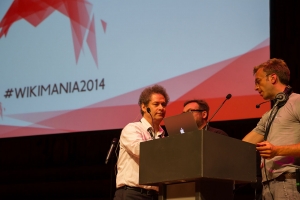
Yaneer Bar-Yam preparing to speak at an event in 2014.
Among those involved is a MIT Professor Yaneer Bar-Yam, who does not appear to have had any previous connection to Ireland. Bar Yam previously advised the Pentagon ‘about global social unrest and the crises in Egypt and Syria’, and the National Security Council and the National Counter Terrorism Council on global strategy, elsewhere described as ‘preventing ethnic violence.’ He also advised policymakers on the elimination of Ebola, a disease which presents a very different challenge to Covid-19.
Tomás Ryan is himself a former Post-Doctoral Fellow (2010-2016) at MIT, having previously been a Junior Research Fellow at the Wellcome Trust Sanger Institute and Wolfson College, Cambridge (2009 – 2010). Ryan’s background is in neuroscience and has no publications in virology or epidemiology.
Bar-Yam set up an organisation called ENDCRONAVIRUS.ORG (https://www.endcoronavirus.org/) in February 2020, and may see Ireland as a potential testing ground for counter-viral methods.
ZeroCovid appeals to national self-interest, requiring exclusion of a diseased ‘other,’ through mandatory quarantines for foreign arrivals, and promotes the creation of zero-transmission zones within the country. In August Bar-Yam co-authored a paper entitled, ‘A green zone strategy for Ireland,’ which recalls Baghdad’s ‘Green Zone’ under U.S. occupation, and districts ‘purified’ by the application of a zero-tolerance approach to crime.
Indefinite elimination of what appears to be an endemic seasonal virus from a globally integrated country such as Ireland appears Utopian however, with most scientists assuming Covid-19 will be with us forever.
Last month, Nature asked more than one hundred immunologists, infectious-disease researchers and virologists working on Covid-19 whether they believe it can be eradicated. Almost 90% responded to say it will become endemic
According to one of those surveyed Michael Osterholm, an epidemiologist at the University of Minnesota in Minneapolis. ‘Eradicating this virus right now from the world is a lot like trying to plan the construction of a stepping-stone pathway to the Moon.’
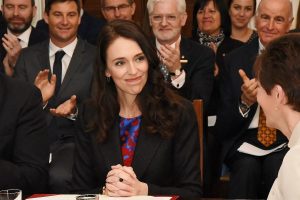
Jacinda Arden
New Zealand
For obvious cultural reasons, Irish ZeroCovid strategists often cite New Zealand’s as a model to follow – factors other than suppression policies appear to be inhibiting Covid-19 in east Asian countries – but this ignores the extreme isolation of a sparsely populated island nation situated on the other side of the world, under a depleted ozone layer that brings elevated levels of virus-killing ultraviolet light. Moreover, New Zealand does not have a disputed border with another jurisdiction to contend with. Also, importantly, New Zealand’s imports arrive in containers, as opposed to Ireland’s reliance on ‘roll-on roll-off’ trucks.
Is anybody else just sick of the daily Doom and Gloom narrative we see from RTÉ?
I also think Zero Covid is unrealistic, I don’t doubt the sincerity of those proposing it, but I’m from the border, I know how it works, and I question if they even know where it is. pic.twitter.com/CX5W1wRXMT
— Senator John McGahon (@John_McGahon) February 13, 2021
Moreover, it seems significant that there have been less than two thousand cases of Covid-19 detected in New Zealand so far during the pandemic. Common cold viruses display infuriatingly unpredictable behaviour, waxing and waning seasonally, like influenza, which derives its name from the influenza degli astri, or ‘influence of the planets.’
A paper from 1973 entitled ‘An outbreak of common colds at an Antarctic base after seventeen weeks of complete isolation’, discusses the case of six of twelve men wintering at an isolated Antarctic base that sequentially developed common cold symptoms after seventeen weeks of complete isolation.
According to the authors: ‘Examination of specimens taken from the men in relation to the outbreak has not revealed a causative agent,’ which the authors say could ‘well have been the effects of a coronavirus.’ Bewildered, they conclude: ‘in some way virus persisted, either in the environment or in the men.’
Furthermore, in an article for Cassandra Voices Justin Frewen observed how decisive political leadership encouraged personal responsibility:
In addition to providing Covid-19 related information through standard media channels, the NZ Prime Minister, Jacinda Ardern, has communicated directly with the public, making herself available to the media and holding daily public press conferences, led by New Zealand’s director-general of health, Dr Ashley Bloomfield. Together they have displayed “a reliable, measured and authoritative face for New Zealand’s Covid-19 response”.Of particular value has been the clarity of Jacinda Ardern’s communication on the virus. Her leadership style has been assessed by one commentator as ‘one of empathy in a crisis that tempts people to fend for themselves. Her messages are clear, consistent, and somehow simultaneously sobering and soothing. And her approach isn’t just resonating with her people on an emotional level. It is also working remarkably well.’
The virus returned mysteriously to Auckland in August, however, leading to a second lockdown. Civil liberties advocates may take issue with the mandatory confinement of anyone testing positive – and mandatory quarantining of all visitors – but the response to the virus has been to the benefit and satisfaction of the vast majority of New Zealanders, and the satisfies a principle of proportionality.
But another outbreak at the beginning of February has brought yet another lockdown to Auckland, and Prime Minister Jacinda Arden has since signalled that the country’s elimination strategy is to be abandoned in the wake of the arrival of vaccines, stating: ‘Our goal has to be though, to get the management of Covid-19 to a similar place as we do seasonally, with the flu. It won’t be a disease that we will see simply disappear after one round of vaccine.’
Yet surprisingly vaccines are not seen as a game changer by ZeroCovid advocates. An ISAG webinar on January 21st found Staines arguing in favour of mandatory quarantine facilities, on the basis that new variants could ‘dodge some of the effects of vaccines.’
It begs the question: if new variants are swirling around the world indefinitely – just as strains of influenza vary from year-to-year occasionally evading the effect of vaccines – will Ireland maintain quarantine requirements indefinitely, as a true believer associated with Bar-Yam’s organisation has proposed? This seems unthinkable for a country with a diaspora of three million and a high proportion of immigrants, some of whom may leave Ireland if this approach is adopted. Unfortunately, as in the War of Terror, the enemy is within, and the war unwinnable.
Australia
A more tortuous, and arguably disproportionate, route to the elimination of Covid-19 was witnessed in Melbourne, Australia, which may serve as a warning to an Irish public desperate for the pandemic to end.
With a similar population to the whole of Ireland’s Melbourne experienced a winter outbreak, beginning in June, that brought a stringent lockdown lasting almost three months. Notably, however, the number of cases peaked at seven hundred per day and the virus declined with the arrival of spring. Ireland has had ten times that number in a single day in January, and as of mid-February has still not brought case numbers down to that level.
Tensions have boiled over at an anti-lockdown rally at Parliament House in Melbourne. Dozens arrested. Capsicum spray used. Protesters chanted “human rights matter” and “freedom” before police moved in to remove them one by one. pic.twitter.com/CZEZkc5lt6
— Jack Paynter (@jackpayn) November 3, 2020
Just this month Melbourne went into another lockdown again after an outbreak in a Holiday Inn, giving the lie to the notion that elimination avoids recurring lockdowns; especially in a country such as Ireland conteding with leaky borders, a poorly resourced health system, and a history of distrust in State institutions.
Advocates of ZeroCovid now call for a level of stringency that brought an end to the Melbourne outbreak, in particular advocating schools close until late April, seemingly oblivious to the damage on children, already denied months of education.
Apocalyptic Warnings
Irish ZeroCovid advocates have been unusually apocalyptic in their assessment of the danger posed by Covid-19, with Tomás Ryan projecting in June that a herd immunity approach, involving successive lockdowns, would result in 50,000 deaths, while Sam McConkey warned in March there could be up to 120,000 deaths.
The latter death toll would be greater than has been witnessed in the U.K., which has the second highest mortality rate (after Belgium) in the world, and a population ten times that of Ireland. Even in almost libertarian scenarios – such as in the two Dakota states in the U.S. – death tolls have been nowhere close to those proportions.
While ZeroCovid might be dismissed as a fringe organisation, or cult, the degree of media exposure its advocates have enjoyed, and their tendency to ‘shock and awe’ with outlandish projections has distorted debate in Ireland, drawing attention away from the profound damage of lockdowns.
The Irish media has developed a fixation on the virus to the almost total exclusion of other challenges we face. Mortality from Covid-19 is not portrayed as equivalent to death by natural causes, but a consequence of moral failings in the population or an indulgent government. It has parallels with the attitude of the Pro Life movement.

Looking forward to life improving.
And yet, as spring approaches case numbers will surely recede, with a range of vaccines and new treatments reducing severity and mortality. Socially distancing has become second nature to many Irish people, and there is increasing knowledge of the importance of ventilation.
The Irish government should resist a social experiment that holds no promise of success, and the public should look forward to life improving. In time we are likely to accept a seasonal mortality from Covid-19, just as we tolerate the burden of seasonal influenza, along with many of the environmental factors that cause or exacerbate the non-infectious diseases that remain our leading killers by far.
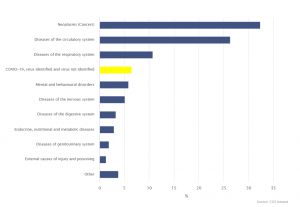
Percentage breakdown of top ten registered causes of death, January – October 2020. Source CSO

